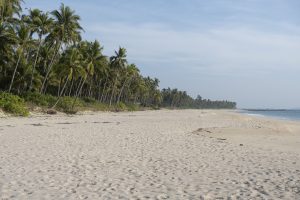Ngapali Beach, in the southern part of Myanmar’s Rakhine State, is facing tough times. Once known for attracting an international crowd of holidaymakers, the country’s premier beach resort is currently experiencing its lowest tourist numbers since the onset of the COVID-19 pandemic.
The situation here has deteriorated in recent weeks, three years after a military coup overthrew the elected government and inflamed the country’s multifaceted civil war.
In October of last year, the Arakan Army (AA), the armed faction of the Rakhine independence movement, initiated a joint offensive with two other ethnic armed groups, resulting in the capture of towns and border posts in the country’s northeast. In an effort to prevent arms shipments from reaching the AA, Myanmar’s overstretched military has cut road access to southern Rakhine and prohibited boats from leaving shore.
Predictably, this has had a devastating impact on Ngapali’s two main industries, tourism and fishing, during what should be the peak season for both. Hotels and restaurants have closed, and staff have been sent home without pay. Fishermen are out of work and are forced to get by on food handouts. Adding to the misery, fuel is increasingly hard to come by, food imports are running low, and prices have risen sharply – and no one can say how long the situation will last.
Once thought of as a bubble of peace and prosperity by local residents, the sense of security here has all but evaporated. One business owner summed up the anxiety, saying, “First they stop the fuel. Then they cut the road. What comes next?”











































